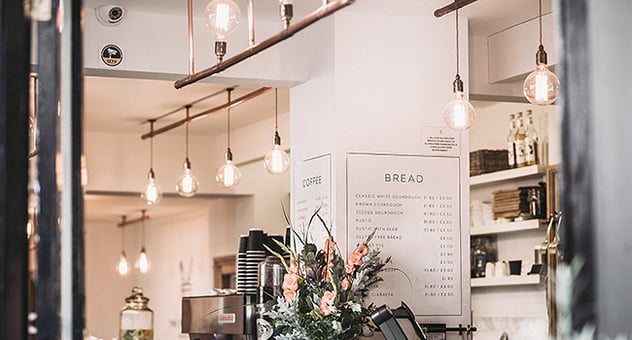Do you own a restaurant or run one? Every business owner aims at growing their business and attracting more customers.
One of the best ways to do that is to improve your local visibility online, particularly as customers are constantly searching for nearby places, including your restaurant.
To effectively market your restaurant or hospitality business online, you need to make use of Local SEO. Here's how to do it.

What is Local SEO?
You have probably heard of Search Engine Optimization (SEO) as one of the critical areas of a marketing strategy, which improves the overall and broader search of your business. On the other hand, local SEO helps a business to promote their product or services to local customers, including those who could be living next door to your venue.
The increased use of mobile search and advances in technology, including Voice Recognition Technology, increases the importance of localized searches. About 40% of voice searches are used to find local answers. Thus local SEO has a significant impact on small businesses.
A survey of the factors that affect Local Search Ranking for a business is proximity. It doesn’t matter how unique your hospitality business or location; you need to influence the factors that drive the searches of prospects, to rank highly.
The number of listed results by Google has reduced from 7 to 3, thus places more importance on how your hospitality business or restaurant ranks. You will need to use keywords with local relevance to increase your rankings.
Benefits of Local SEO for your restaurant
Understanding how implementing Local SEO strategies will boost your business. Here are some of the reasons why:
- Helps position your business to potential customers, on search engines or digital marketing platforms, and, on their terms.
- Increases your chances of getting found by potential customers as they search for a best local business, e.g., paraphrase sentence services, in their area.
- It is a way to promote your business and services to local customers.
- It increases brand equity for your restaurant.
If a searcher doesn’t use a location modifier in their search query, Google guesses search intent and offers local results. How then, do you as a local, service provider, improve your rankings in Google?
The tips outlined below aren’t restricted to restaurants, you can also implement it in your small business, such as your cafe or bar.
1. Set up your Google My Business page
It goes without saying that Google is the most used search engine. It is only wise to ensure that your business is listed on Google. For restaurants notably, Google has additional features that are useful.
The Google Post feature allows you to create a 300-word post with a picture and links for visitors to sign up, book, learn more, get an offer and buy. You can use the post to announce special events. You can also add links to your menus, and the URL for reservations.
2. Use online citations
Credible citations will help your restaurant gain exposure. It is a dependable source of traffic as well as a local SEO signal. The time to list your service offered by your restaurant is now. Some of the big players in the hospitality industry already have their businesses listed on FourSquare or Yelp.
There are other small citations firms that you can work with, too, e.g. Bright Local. When claiming your listing, control it by interacting with reviewers, update your information, and add a favorable image.
A significant number of people trust online reviews just as they would a personal recommendation. It also happens when shopping online. Citations provide search engines with verification that your business exists. If your company is legitimate, then, it improves your ranking.
3. Include your menu
Though customers may enjoy surprises, they also like to know what to expect - more so, when they visit a restaurant. They want to know what their budget can afford, what their food will look like, or even make a decision of what they want to eat before arriving.
Most restaurants overlook the menu feature, however, it is a valuable area of investment to drive traffic to your doors. Stand apart from your competitors, who may also offer similar items by listing your menu. If you don’t, a third party site will do it.
If your menu is seasonal be sure to update the menu on your site, location, and also third-party site. The info should be consistent. You can also submit the updates to Google, where your changes can be made immediately.
4. Add schema to help your online visitors
A schema is a code that you can place on your restaurant's homepage. It tells SERP what your website is about. You can also put it in the header or side wide. Google will draw essential information about your business from it.
It includes the nature of the business, e.g. location, hours, etc. Ensure that your web page has all the relevant information. Remember to add schema to your menu page. It will provide clarity on the items on the carte du jour, their division, and location of the menu.
5. Use other sites for traffic
If you don’t have a real website, you can invest in other sites. You first have to know the specific websites that your audience goes to when looking for recommendations in your niche. For example use specialized sites such as Yelp, Zomato, or TripAdvisor.
They appear in the search results by Google. Build your business page on these sites. They already have an established audience and traffic that can boost your business.
Don't forget to add links to your social media accounts on your business page, and vice versa. It gives you additional exposure and more referral traffic to the page. As more people check out your business page on Google it increases the likelihood of your business appearing in a search result.
6. Upload awesome images
You can also improve and optimize your local visibility using high-quality photos. Take pictures that showcase the best of your premises and staff.
Take eye-catching visuals of your menu items, include photos of happy customers enjoying your dishes, or photos of your restaurant on a busy day. This will help increase the effectiveness of the reviews of your venture and in turn, boosts your search results.
When adding uploading photos to your business profile, don't forget to use geotags and include alt-text descriptions on the images that you share. Including keyword-rich information and your location will improve your local reach and make it easy for your customers to find you.
Your restaurant business will benefit significantly from Local SEO strategies. It increases your exposure for local customers, who are often a vital audience. Once you start implementing these, your online and offline traffic will increase and attract more customers.

Learn more about improving your social media presence for your hospitality business with this course. Start our course now with social media expert, Sam Mutimer.
 |
Barbara Johnson works as a content rewriter. Her articles are centered around helping others to improve their skills and achieve success in their business. Barbara's hobbies are reading, yoga and drawing. Her life motto is “Success is simple. Do what’s right, the right way, at the right time”.
|
You might also like: